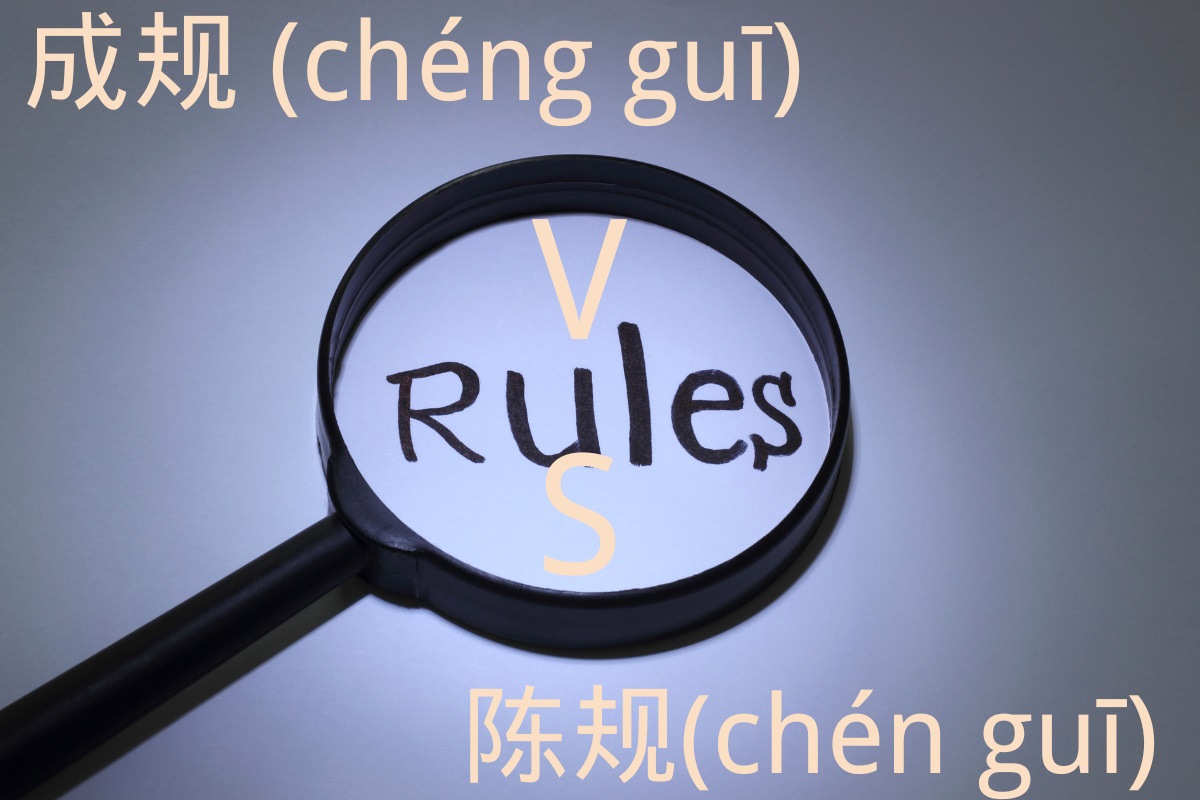HSK Words: 成规 (chéng guī) VS 陈规 (chén guī)
In HSK learning, 成规 (chéng guī) and 陈规 (chén guī) are two words that are often confused. While both are related to rules or traditions, their usage and meanings differ slightly. In this article, we will distinguish between these two words by analyzing their meanings and usage.

成规 (chéng guī) typically refers to an established rule or tradition that has developed over time and is considered standard or normative. It typically implies a general acceptance and adherence to the rule or tradition.
Examples:
- Although we usually follow established rules, flexibility is also important in certain situations.
虽然我们通常遵循成规,但在某些情况下,灵活性也是非常重要的。
suī rán wǒ men tōng cháng zūn xún chéng guī, dàn zài mǒu xiē qíng kuàng xià, líng huó xìng yě shì fēi cháng zhòng yào de。 - For this situation, it can be handled according to existing regulations.
对这个情况,可以按照已有成规进行处理。
duì zhè gè qíng kuàng, kě yǐ àn zhào yǐ yǒu chéng guī jìn xíng chǔ lǐ。 - We cannot stick to the rules.
我们不能墨守成规。
wǒ men bù néng mò shǒu chéng guī。
陈规 (chén guī) typically refers to an outdated or obsolete rule or tradition that is no longer considered valid or useful. It typically implies a need to modify or replace the rule or tradition.
Examples:
- These outdated rules and regulations from 20 to 30 years ago must be broken, and new regulations must be formulated based on the new situation.
这些二三十年前的陈规旧律必须打破,并根据新情况制定新规定。
zhè xiē èr sān shí nián qián de chén guī jiù lǜ bì xū dǎ pò, bìng gēn jù xīn qíng kuàng zhì dìng xīn guī dìng 。 - He refuses to accept old customs and insists on dealing with problems in his own way.
他拒绝接受陈规旧俗,坚持以自己的方式处理问题。
tā jù jué jiē shòu chén guī jiù sú, jiān chí yǐ zì jǐ de fāng shì chǔ lǐ wèn tí。 - We need to abandon stereotypes and embrace change to adapt to the rapidly developing society.
我们需要摒弃陈规,拥抱变革,以适应快速发展的社会。
wǒ men xū yào bìng qì chén guī, yōng bào biàn gé, yǐ shì yìng kuài sù fā zhǎn de shè huì 。
Quiz: Please consider whether to use 成规 (chéng guī) VS 陈规 (chén guī) in the following sentences.
- 我们应该废弃____旧习。
wǒ men yīng gāi fèi qì ____ jiù xí。 - 作家们一旦突破____ ,他们的作品就会获得生机。
zuò jiā men yī dàn tū pò ____ , tā men de zuò pǐn jiù huì huò dé shēng jī。 - 我们要勇于挑战传统,打破____的思维定式,才能不断进步。
wǒ men yào yǒng yú tiǎo zhàn chuán tǒng , dǎ pò ____ de sī wéi dìng shì,cái néng bù duàn jìn bù。
Answers:
- 陈规 (chén guī)
- 陈规 (chén guī)
- 成规 (chéng guī)